
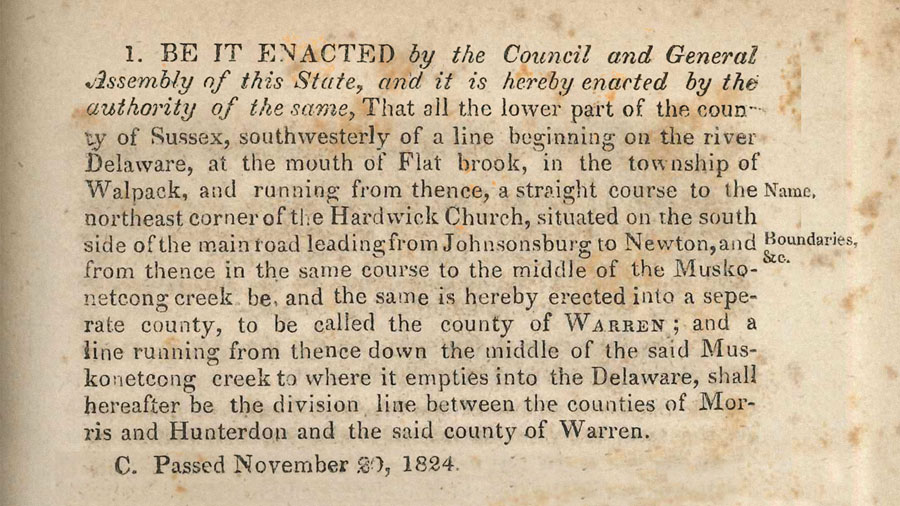
On November 20, 1824, legislation entitled “AN ACT to erect the southwesterly part of Sussex county into a separate county, to be called the county of Warren” was passed by the Council and General Assembly of the State of New Jersey.
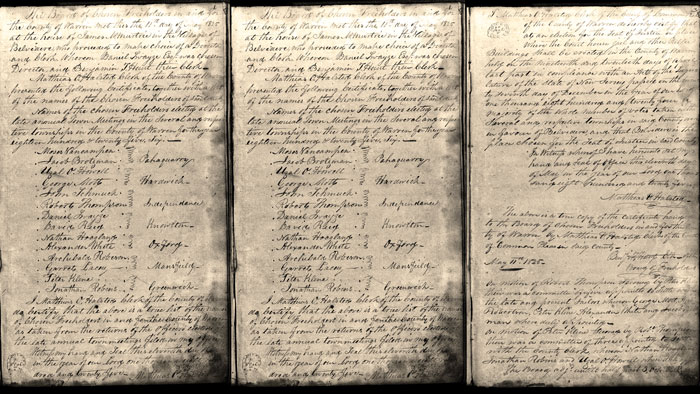
The Act of 1824 appointed three commissioners to establish the new border dividing Warren from Sussex before the first day of May 1825.
In 1825 residents of the new county selected Belvidere as their county seat and elected their first Board of Chosen Freeholders, who met for the first time on May 11, 1825.
The new county consisted of the seven original townships of Pahaquarry, Hardwick, Independence, Knowlton, Oxford, Mansfield, and Greenwich, with two freeholders elected from each township.
In the 1830 federal census, the first since the division of Sussex into two counties, Warren County had a population of 18,627.
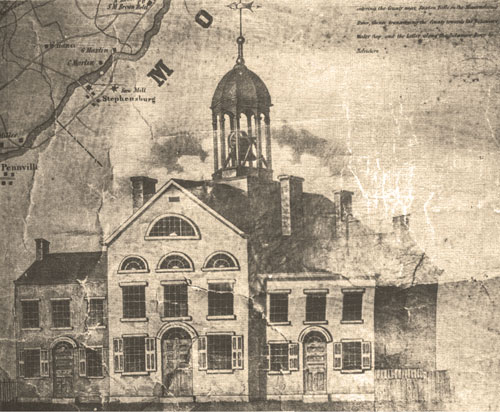
On June 9, 1825, the Freeholders voted to build a Courthouse 40 feet by 60 feet on land in Belvidere donated by Garret D. Wall.
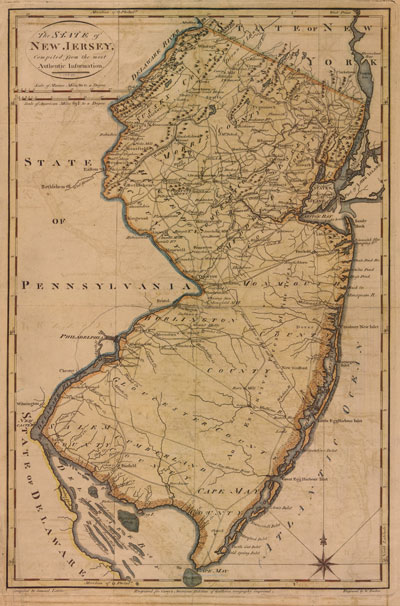
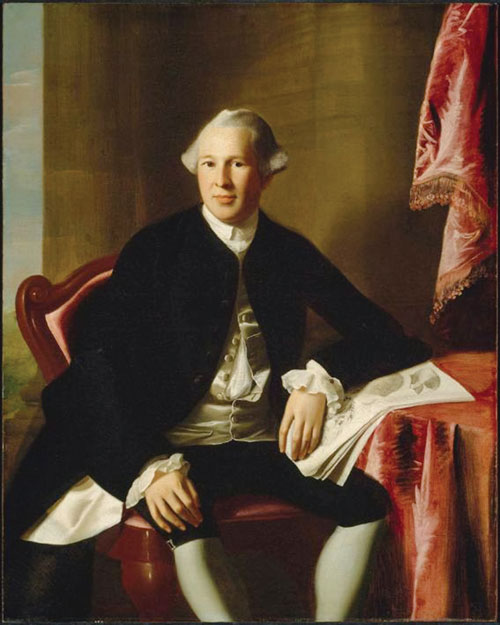
Warren County was named for Joseph Warren (June 11, 1741 – June 17, 1775), a Founding Father of the United States. A physician in Boston, Dr. Warren was a major figure in the Patriot movement in the early days of the American Revolution, inciting his countrymen to break with England. He was appointed President of the Massachusetts Provincial Congress, the highest position in the revolutionary government there.
It was Warren who enlisted Paul Revere and William Dawes to spread the alarm that British soldiers stationed in Boston were setting out to raid the town of Concord and arrest rebel leaders John Hancock and Samuel Adams.
… I was sent for by Docr. Joseph Warren, of said Boston, on the evening of the 18th of April, about 10 oClock; When he desired me, “to go to Lexington, and inform Mr. Samuel Adams, and the Honl. John Hancock Esqr. that there was a number of Soldiers, composed of Light troops, & Grenadiers, marching to the bottom of the Common, where was a number of Boats to receive them; it was supposed, that they were going to Lexington, by the way of Cambridge River, to take them, or go to Concord, to destroy the Colony Stores.” - Paul Revere, 1775 account of his “midnight ride.”
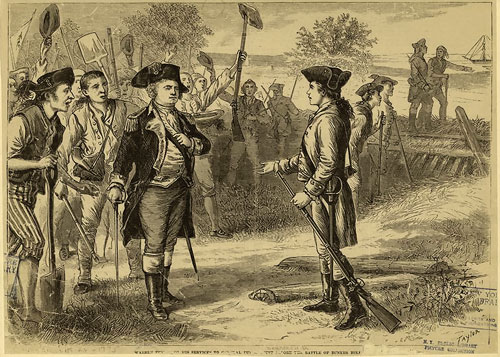
Warren fought the next day in the Battles of Lexington and Concord, the opening engagements of the Revolutionary War, and was nearly killed when a musket ball struck part of his wig. After the battle, his mother tearfully pleaded with him not to risk his life, to which Warren replied, “Wherever danger is, dear mother, there will your son be. Now is no time for one of America’s children to shrink from the most hazardous duty; I will either set my country free, or shed my last drop of blood to make her so.”
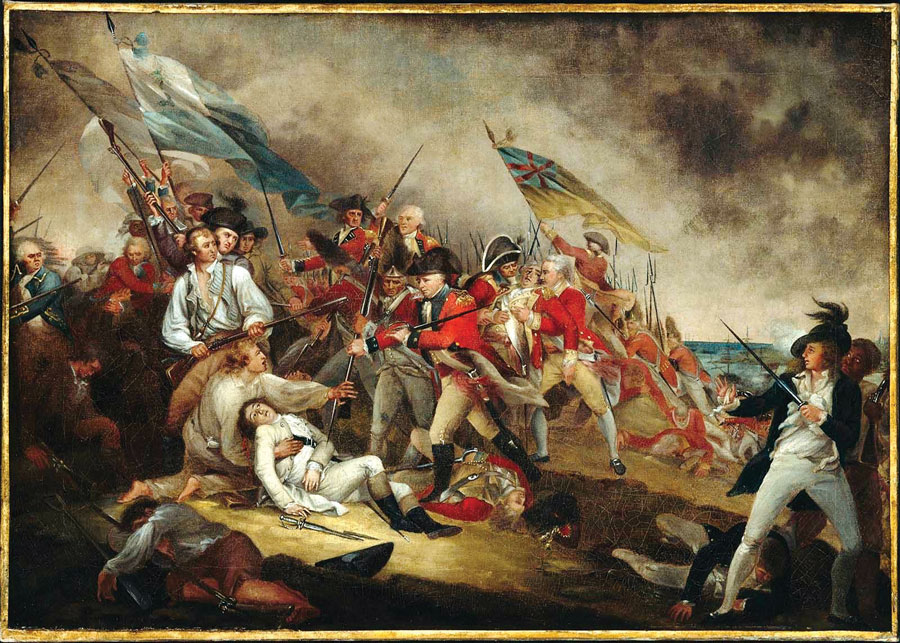
Warren was commissioned into the Continental Army as a major general by the Second Continental Congress on June 14, 1775, and three days later arrived in Charlestown just before the Battle of Bunker Hill began. Meeting General Israel Putnam, he asked where Putnam though the heaviest fighting would be, then volunteered to join the militia as a private at that spot. Warren was killed by gunfire during the third and final British assault of Breed’s Hill.
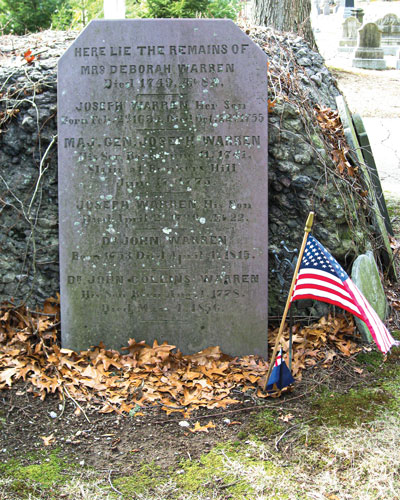
British General Thomas Gage is rumored to have said that Warren’s death was equal to the death of 500 ordinary colonials.
Viewed by many Americans as an act of martyrdom, Dr. Warren’s death encouraged the revolutionary cause and he remained a revered figure for years.
Some 40 municipalities were named for Joseph Warren, and New Jersey's is one of the 14 counties named for him. In order of their formation, they are:
Millbrook Village, part of the Delaware Water Gap National Recreation Area, is a re-created community of the 1800s where aspects of pioneer life are exhibited and occasionally demonstrated by skilled and dedicated docents throughout the village
Consider Rutherfurd Hall as refuge and sanctuary in similar ways now, as it served a distinguished family a hundred years ago.
Local roots!
The Centenary Stage Company produces professional equity theatre and also a wide variety of top-flight musical and dance events throughout the year.
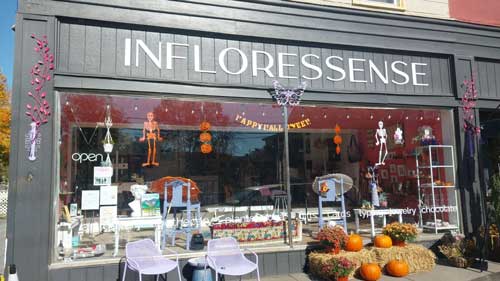
A fine art gallery like no other! Unique, handmade gifts and cards as well as yoga, meditation, and continued learning lectures. Come in Saturdays for all-day open mic and Sundays to try unique nootropic chocolate or mushroom coffee. Browse the $5 books in the Believe Book Nook while you nibble and sip.